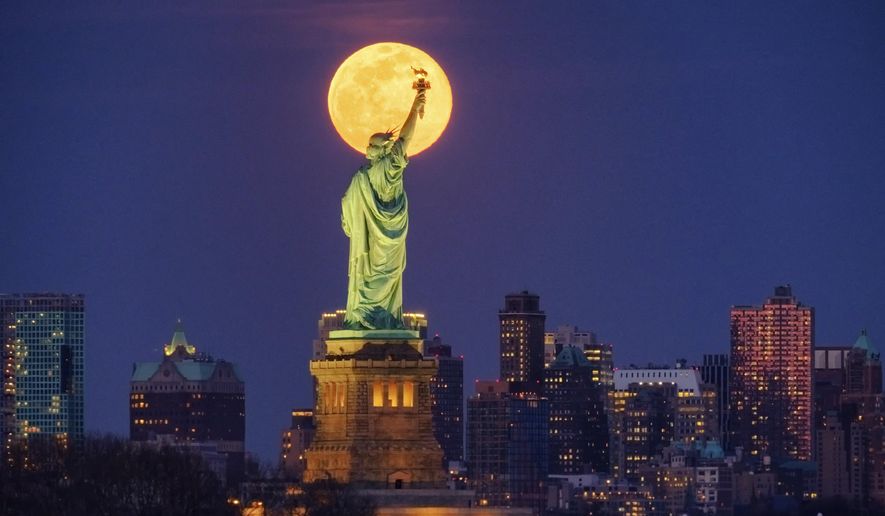OPINION:
The coronavirus pandemic is in the full swing around the globe and no one can predict when it will be over or at least largely contained. We can only hope and pray that this happens sooner rather than later.
Nevertheless, judging from official statements and the media it looks like this pandemic not only will influence the internal politics of many countries but might reshape relations between the major powers – and perhaps even produce a new international configuration.
John Keiger writes in Spectator that “the stakes are high and could lead to a realignment of the power rankings of states and even an acceleration of a post-American world.”
I’d take it a bit further and speak about post-Western world.
During the Cold War, with its ideological and economic competition between East and West, the latter definitely looked more attractive. I cannot speak for all, but it was no doubt so for the majority of people in the Soviet bloc countries. The proof is that when in the late 1980s the Soviet empire started to disintegrate there were no crowds in the streets trying to save it. To the contrary, the overwhelming majority, including Soviet citizen, welcomed this process. At that time America’s sky-high popularity was evident to everyone.
Not anymore. The continuing statements from Washington about its superiority and God-given right to world leadership now sound like empty rhetoric with no substance to back it up. Economic and military might is still there, but the absolutely required moral standing and “soft power” have largely disappeared. The country itself is split, divided by the non-stop internal squabbling, with each side using the most contemptuous language against the other.
Nowadays when the Leader cannot deliver we hear and read much about the “crisis of the Western civilization.” A Google search of that expression yields some 28 million hits. Of course, that is not scientific proof, and one can always blame Putin and his bots for subverting not only U.S. elections but the entire cyberspace. Indeed, the statements by the Russiagaters and media headlines are saturated with such stories, but the top “Shmulitzer” prize goes to that mother of fake news, the New York Times, which recently ran a breathless account of how the “long war against American science, a decade of health disinformation promoted by President Vladimir Putin of Russia, has sown wide confusion, hurt major institutions and encouraged the spread of deadly illnesses.”
Earlier, U.S. Rep. Eric Swalwell, a California Democrat who was then seeking his party’s 2020 presidential nomination, compared Russian meddling in U.S. elections to the deadly Japanese attack on Pearl Harbor that drew the U.S. into World War II.
As we recall the fake informational warfare in 2003 about non-existent Iraqi weapons of mass distraction led to the U.S. catastrophic invasion in that country, resulting in huge human and material losses as well as the eventual birth of ISIS.
The intensity of the current anti-Russia and anti-Putin hysteria is such that it can be considered a direct call for yet another war, this time with nuclear Russia.
Fortunately, there are many folks, both in U.S. and around the world, who are not ready just to sit and wait for the arrival of Armageddon.
Mauro Ferrari, who was until recently a chief scientist of the European Research Council, said: “In time of emergencies people, and institutions, revert to their deepest nature and reveal their true character.”
Pope Francis followed with the statement: “In light of the present circumstances, may international sanctions be relaxed, since these make it difficult for countries on which they have been imposed to provide adequate support to their citizens.”
So far a dead silence from Washington or Brussels, but a large group of American, Russian, European and Eurasian experts has come up with the idea of using the symbolic date of the 75th anniversary of the allied victory over the Nazi Germany and the U.S.-Soviet military linkage on the Elbe River to call for the revival of that alliance to meet the global challenges of the 21st century. In the press release they issued a call for the dialogue and cooperation on international security, infectious diseases, climate change, people-to-people exchanges and other pressing issues.
Specifically, they appealed to the permanent members of the U.N. Security Council to revive and expand international cooperation on arms control and nuclear security at the upcoming 75th session of the United Nations in the fall of this year.
They also highlighted the worsening situation with climate change and enthusiastically endorsed a proposal for a global joint program to plant over a trillion trees – mainly in the Northern Hemisphere: Russia, the U.S. and Canada – to absorb billions of tons of carbon dioxide, seen as a major component of rising temperatures and catastrophic weather events.
International experts believe that in the absence of a broad East-West government dialogue, people-to-people contacts play an even more important role now than before. As we have seen during this period of “social distancing,” new communication technologies like Zoom provide excellent opportunities for direct online interactions between citizens around the world, including universities, high schools and NGOs.
Finally, the experts resolved to form ongoing working groups to serve as a hub for the exchange of creative ideas and developing of concrete actions for the solution of political, environmental, and strategic problems facing the world.
No doubt skeptics will dismiss such calls as a mere “voice crying in the wilderness,” as they dismissed John the Baptist. I ask such skeptics: “Alright, so what is the alternative?”
Edward Lozansky is president of the American University in Moscow.




Please read our comment policy before commenting.